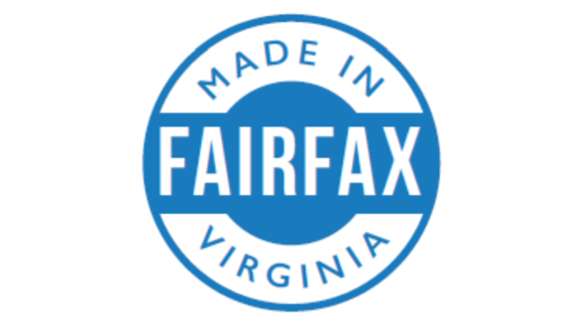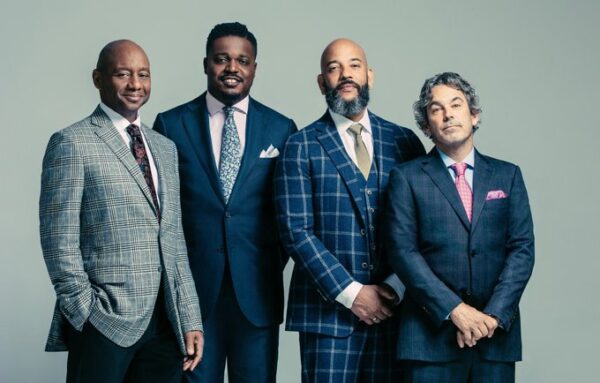
The Weekly Planner is a roundup of interesting events coming up over the next week in the Tysons area.
We’ve searched the web for events of note in Tysons, Vienna, Merrifield, McLean, and Falls Church. Know of any we’ve missed? Tell us!
Monday, Jan. 24
- Fiber Art Exhibits — 11 a.m. to 4 p.m. at the McLean Textile Gallery (6819 Elm St.) — Artists Cindy Grisdela and Eileen Doughty show off their stitching skills in this joint exhibition.
Tuesday, Jan. 25
- Jessica Stone — 7-8:30 p.m. at Patrick Henry Library (101 Maple Ave. East) — The author of “Crossing the Divide: 20 Lessons to Help You Thrive in Cross-Cultural Environments” talks about mistakes and triumphs in a talk geared toward high schoolers, college students, and their parents.
Wednesday, Jan. 26
- An Evening with Branford Marsalis — 8 p.m. at The Barns (1635 Trap Road) — The Branford Marsalis Quarter, led by a saxophonist from the Marsalis jazz family, performs at Wolf Trap. Tickets start at $68, and doors open at 6:30 p.m. The band will also perform on Thursday.
Thursday, Jan. 27
- Joint Operation — 8 p.m. at Jammin Java (227 Maple Ave East) — With reggae band Harbor Boys and special guest Toby Raps, this Baltimore-based funk-rock band shows a range of influences, from Beck to Sublime. Doors open at 7 p.m. Tickets start at $15.
Friday, Jan. 28
- Russell Peters: The Act Your Age World Tour — 7 p.m. at Capital One Hall (7750 Capital One Tower Road) — The comedian who landed Netflix’s first comedy special visits Tysons for shows on Friday and Saturday. Tickets start at $59.75.
Saturday, Jan. 29
- Shop Local Saturday Market — 12-5 p.m. at The PARC at Tysons (8508 Leesburg Pike) — Browse baked goods, artwork, crafts, and goods from more than 25 local small businesses, artisans, and entrepreneurs. This is Celebrate Fairfax’s second market at The PARC this year, with more dates expected to be announced soon.
- “The Dinner Party” — 8-10:30 p.m. at the Vienna Community Center (120 Cherry St. Southeast) — The Vienna Theatre Company continues staging Neil Simon’s one-act play, a comedy about marriage and divorce that centers around strangers gathering for an unorthodox dinner party. Tickets are $15. Additional performances go through Feb. 6.
Sunday, Jan. 30
- Virtual Piedmont Wine Dinner — 5-6:30 p.m. through Zoom — Thompson Italia in Falls Church (124 N. Washington St.) is offering a four-course meal for two people with wine pairings and an online experience with a Charlottesville wine importer representative. Customers will pick up food and wine beforehand. Cost is $220.
County Appoints New Parks Director — “The Fairfax County Board of Supervisors affirmed the selection of Jai Cole as Executive Director of the Park Authority [Tuesday]…Cole, a park professional with more than two decades of leadership experience with award-winning recreation and park agencies will begin immediately, filling the vacancy created by the retirement of…Kirk Kincannon earlier this year.” [Fairfax County Park Authority]
Deadline for COVID-19 Relief Grants Extended — Fairfax County has extended the application deadline for its Active and Thriving Community Grants Program to 11:59 p.m. on Sept. 21. Previously set to close yesterday (Tuesday), the program is intended to help child care providers, community programs, and other small businesses and nonprofits negatively affected by the COVID-19 pandemic. [Fairfax County Government]
Tysons Adapts to Decline in Commuting — With the pandemic keeping many workers at home, local business leaders say a growing emphasis on mixed-use developments like The Boro and Capital One Center will help office-centric Tysons adapt to a world of remote work. Proximity to transit and retail amenities will be key to attracting young employees, ID.me Chief Marketing Officer Jean Rosauer said at last week’s Future of Tysons event. [Bisnow]
Some Teachers Skeptical of Live-Streaming Proposal — “After Fairfax County Public Schools added classroom streaming for students forced to stay home because of COVID-19, some teachers are pushing back…David Walrod, a teacher at FCPS, who also serves as the first Vice President of the Fairfax County Federation of Teachers, worries that the live streaming will evolve into concurrent learning — which even the superintendent said wasn’t ideal for students.” [WUSA9]
Tysons Security Company Evacuated Clients from Afghanistan — “As U.S. troops began to withdraw from Afghanistan, Tysons-based Global Guardian reached out to its clients there to offer evacuation assistance. On August 5, 10 days before the Afghan government collapsed, the company began evacuating its clients from Kabul and two other cities. By August 18, Global Guardian had successfully evacuated all but one individual, whom it later got out of the country.” [Fairfax County EDA]
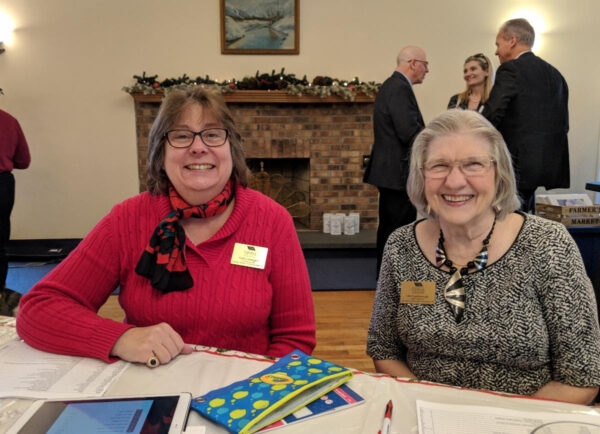
D.H. Scarborough, a supporter of Vienna businesses and community leader, was the first person to show up to events and last one to leave.
That’s how friends remember the 85-year-old accountant who co-founded the Vienna Business Association and became known for helping organize the town’s annual Halloween parade.
Scarborough, whose full name is Donna Helen Macdonald-Scarborough, died of pancreatic cancer on Aug. 15 at her Manassas home.
“She was very, very well-rounded in wanting to do everything for everybody,” said Kathy Georgen, who co-founded the Vienna-based accounting firm Georgen Scarborough Associates with Scarborough in 2008.
Scarborough would always put the customer first, just like when she was raising her four sons on her own, Georgen says, even if that meant driving to older people’s homes or other places to serve her clients’ needs.
In addition to serving as the first VBA board chair and president of the Town Halloween Parade Committee, Scarborough was involved in the Town of Vienna Historical Association, the chamber of commerce, and various town commissions, among other contributions “to her beloved town,” her obituary says.
She had also been named Lady Fairfax and won awards for business owner and business person of the year.
In her community roles, Scarborough loved serving kids and often helped behind the scenes.
For the Halloween parade, though, she accepted the honor of grand marshal — a title usually bestowed on one person each year — and “had the pleasure of riding down Maple Avenue in the parade with her granddaughters,” according to the Vienna Business Association, which announced her death in an Aug. 19 tribute.
“For some reason, she and the Halloween parade clicked. D.H. was always synonymous with the Vienna Halloween Parade,” Georgen said.
Scarborough served in several iterations of Vienna’s business group, preached the importance of face-to-face connections, and kept a smile on her face.
Vienna Business Association Executive Director Peggy James recalls Scarborough as a nurturing mentor and friend who made pulling off events that sometimes went as long as 15 hours more manageable.
“She understood that…the most important thing you can do is show up for others,” James said, noting that Scarborough was a regular at ribbon-cutting and grand opening events.
Scarborough also collected money for the Town of Vienna’s annual Oktoberfest, and when teased that she needed protection or security, she would adamantly reassure others, “I don’t need a security guard.”
“She loved being around people and being part of the team who had brought joy to all those attending,” friend Mike Davis wrote. “D.H. was a wonderful, caring person and she will be missed in Vienna for a very long time to come.”
She retired in 2018 and was later diagnosed with cancer, but Georgen notes her former business partner was still able to return to her accounting practice when needed, and the firm will continue to bear her name.
A memorial service for Scarborough will be held at 1 p.m. on Friday (Aug. 27) at the Vienna Presbyterian Church, according to her obituary. It will be followed by a Celebration of Life at the American Legion post in Vienna.
A new store in Vienna will feature food without packaging, household products that don’t add to landfills, and much more.
Mala Persaud, who has lived in the town for over a decade, plans to unveil Trace — The Zero Waste Store to the public this October at 140 Church Street Northwest, part of her personal journey to embrace a lifestyle of seeking to eliminate non-recyclable and non-reusable products and packaging.
“People can actually see with their own eyes…how much trash we generated with the pandemic,” Persaud told Tysons Reporter. “This is a way to make it a little bit easier to make slightly different choices.”
She plans to have approximately 400 items at her store with bins for spices, bulk foods from rice to nuts and beans, local products such as honey and peanut butter, hygiene items such as soap and shampoo, and household cleaning items.
Trace joins a growing community of environmentally friendly stores that seek to provide alternatives to single-use packaging, which often ends up in landfills, the ocean, or incinerators that emit greenhouse gases.
Persaud committed to transitioning away from single-use packaging when she was on vacation in Belize in 2016 and saw plastic bottles and trash on a road, sensing that it could soon be washed into the ocean.
She avoids plastic bottles, gave up cheese for a month last October due to the packaging, and embraced other lifestyle changes such as Plastic Free July.
“The earth cannot re-absorb the plastic we’ve created,” her website says. “So we have to find a way to reduce how much we use. Zero Waste stores make it possible to re-use what we already have, thereby reducing the amount that ends up in landfills or in the ocean.”
Even Trace’s store sign is an opportunity for sustainability. Persaud is asking the town to allow changes for her building storefront so she can use more reusable and cost-effective materials, enabling any future tenants to simply replace lettering rather than having to make a completely new sign.
Her application is going before the Board of Architectural Review tomorrow (Thursday) for its 7:30 p.m. online meeting.
“When I leave…the next business owner is just going to be able to lift the letters off and get new ones printed, and it will cost a couple hundred dollars,” she said.
Persaud’s family has served as an example for her low-waste lifestyle, too: Her parents were surprised by all the packaging used in the U.S. when they immigrated from Guyana, and her grandmothers saw paper towels as a luxury, reusing them until it was no longer possible to do so.
Her 20-year-old son has also taken steps to reduce his waste footprint, such as avoiding plastic cutlery for takeout food.
Persaud has personally vetted the items that her store will sell, such as wooden spoons. She brings her own set with her to avoid creating unnecesary waste.
“It does become habit-forming,” Persaud said of adjusting to bringing her own packaging to a store. “And then when you see how much less trash you’re generating, it actually feels pretty good.”
Photos courtesy Trace — The Zero Waste Store / Instagram, tracezerowaste.com
The local “mom-owned” business Kiln & Co. has relocated its main store to a new spot on Church Street in Vienna.
After more than seven years at 138 Church Street NW, the pottery/frozen custard shop reopened on July 2 at 115 Church Street, the space previously occupied by Church Street Pizza, which moved around the corner to a Maple Avenue address earlier this year.
Sarah Selvaraj, who started Kiln & Co. in 2013 as a pottery shop, says the relocation was one of several changes to the business brought about by the COVID-19 pandemic.
“COVID was a challenge for us like many small businesses,” Selvaraj said. “When the inside of the studio was closed, we had to get creative in order to still be able to serve our customer base.”
In addition to downsizing to the smaller Vienna venue, Kiln & Co. sold its Reston location. Selvaraj confirmed that the Lake Anne Plaza store has closed permanently, though it is listed as just “closed for the season” on the company’s website.
When the pandemic shut most retail businesses down in the spring of 2020, Kiln & Co. created a monthly subscription service and a delivery service for custard and do-it-yourself pottery kits.
While Kiln & Co. is now open again for walk-in customers at its Vienna and Falls Church (455 South Maple Avenue) studios, staff are still required to wear masks at all times, and the business is “following all of the CDC guidelines to provide a safe environment for all,” Selvaraj says.
Details for a grand opening celebration for the new Vienna location on Sept. 6 will be announced through the company’s social media.
“We are now right off of the bike path making it easy for people to stop in to enjoy some custard and the space gives us the perfect amount of room for our studio as well as a separate area for classes, birthday parties and events,” Selvaraj said.
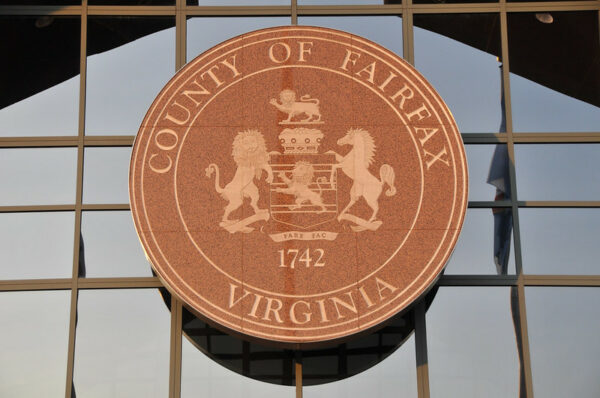
Fairfax County could send over $24.4 million in federal money to small businesses recovering from the COVID-19 pandemic through its PIVOT grant program.
The money, which doesn’t have to be repaid, is intended to help economic recovery efforts. After an application period ran from June 23 to July 9, county officials gave updates on the program to the Fairfax County Board of Supervisors during an economic initiatives committee meeting this morning (Tuesday), stressing the timing and scope of the support.
“Our retail services and amusements businesses really did need this funding,” said Theresa Benincasa, economic mobility manager with the county’s Department of Economic Initiatives. “They stepped up and requested it in large numbers.”
Nearly 1,600 applicants for Fairfax County’s small business PIVOT grant program are eligible to get the money based on an initial eligibility check, while 921 applicants are ineligible, county staff reported.
During the meeting, Board of Supervisors Chairman Jeff McKay asked if the county had flexibility on an eligibility requirement that a business have a commercial storefront. He said two businesses approached him about the issue, one of which was a catering business tied to a closed office building.
Benincasa said officials could work with him on that issue.
Most of the applicants that were ineligible didn’t meet the threshold for economic injury. Over 300 didn’t have a commercial storefront, and nearly 200 secured a Small Business Administration Restaurant Revitalization Fund grant, which provided $283,000 on average, according to the county.
Recipients had to have at least a 15% loss in annual revenue. Eligible applicants averaged a 46% reduction in revenue and 25% reduction in employees, according to county data.
Benincasa noted that applications are still moving through a three-step process to obtain the money. The first step involved using a web portal to determine initial eligibility, and the remaining steps could last from August to November.
The grants are being funded with $25 million that the county received from the American Rescue Plan Act. If demand surpassed that threshold, the county had prepared to prioritize funding to hotels and then create a lottery system for other applicants, but because it didn’t, that randomization element will be scrapped, the county said Tuesday.
The breakdown of awards is projected to be the following:
- $14.1 million to 1,178 applicants with an average of four employees in the areas of retail, services, and amusements
- $5.4 million to 309 applicants with an average of eight employees in the food service sector
- Nearly $4.5 million to 61 applicants with an average of 25 employees in the lodging sector
- $415,000 to 49 applicants with an average of four employees in the areas of arts organizations, museums, and historical sites.
The awards range from $1,500 to $18,000 per business, which all had to have 500 employees or fewer.
Hotels could receive $400 per room if they had 10 rooms or more. In January, the American Hotel and Lodging Association released a report on the “sharp and sustained” drop in travel due to COVID-19 in 2020 and projected that the travel industry won’t fully recover until 2024.
Benincasa said that most of the hotels in the county are getting PIVOT money, but that didn’t include all of them, possibly because of the 500-employee cap.
“The need is immediate,” said Dranesville District Supervisor John Foust, who chairs the economic initiatives committee, noting the county’s work isn’t finished in helping small businesses.
Photo via Machvee/Flickr
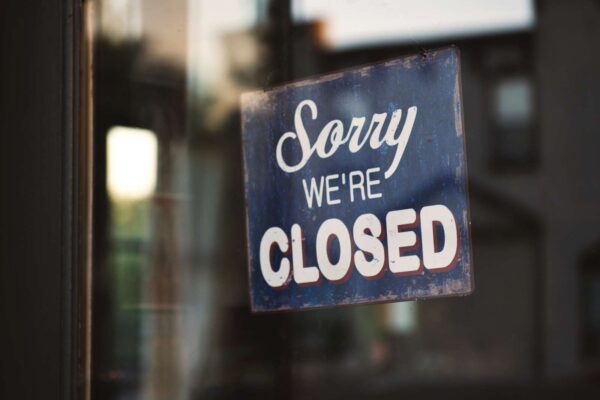
A new report shows that minority-owned businesses in Fairfax County and Northern Virginia as a region suffered more acutely due to the COVID-19 pandemic than businesses owned by their white counterparts.
The Community Foundation of Northern Virginia released a report in late June detailing findings and recommendations from their minority-owned business working group.
They found that at the end of 2019, there were 128,000 minority-owned businesses in Northern Virginia, which encompasses five counties, including Fairfax. That’s approximately 42% of all establishments in the region, well above the national average of 29%.
Of the 128,000 minority-owned businesses in Northern Virginia, about 55,000 are in Fairfax County, according to statistics provided by the Fairfax County Economic Development Authority (EDA).
More than 8,000 non-farm businesses with paid employees in the county are owned by people of color, representing about a third of all such businesses in the county.
“It’s turned out to be one of our winning hands,” says EDA’s CEO and President Victor Hoskins about the number and contributions of minority-owned businesses in the county. “It’s something grown up here over time…just part of the DNA of not just Fairfax, but Northern Virginia.”
While the number of minority-owned businesses remained essentially flat throughout 2020, revenue and staffing at those businesses has decreased dramatically, while unemployment insurance claims have gone up.
According to the report, minority-owned businesses are more likely to be smaller in size, concentrated in high-risk industries such as accommodation and food service, and face more difficulties in securing capital. Due to these factors, minority-owned businesses are more likely to have “poor or fair” financial health.
Consistent with the rest of the region, Fairfax County minority-owned businesses have also suffered more acutely due to the pandemic. Because these businesses tend to be smaller in size, they simply have had less ability to overcome the economic hardships brought by the pandemic.
“Smaller businesses were disproportionately impacted by not having the financial wherewithal to weather the storm that this pandemic caused,” said Stephen Tarditi, EDA’s director of marketing intelligence. “They tend to be concentrated in industries more adversely…impacted by the pandemic.”
The report offered a number of recommendations for ways to better support these businesses, including better tracking of data and information to understand more specifically which businesses need help and when.
It also notes that more financial help is needed, including with grant funding and better strategies to improve access to capital for these businesses.
Officials agree with the report that more can be done. For example, specific data, like numbers related to revenue and number of paid staff, can drive policy, but there’s often a lack of up-to-date information.
“I was just surprised at how little…or regularly updated data that we have on hand to make these decisions,” Tarditi said. “I’m having a tough time knowing what the pandemic’s impact has been on our minority business community. This data drives the decisions and drives the strategy, which is extremely important, especially in this past year.”
EDA officials say the plan going forward is to disseminate more surveys more often with better outreach to be able to compile more and better data.
Last year, Fairfax County distributed more than $52 million in relief funding to small businesses through its RISE program, about half of which went to minority-owned businesses.
“We actually designed the RISE program to target a portion of small and minority-owned businesses,” says Hoskins. “I think the target was 30%, but we ended up [with] 72% [going to] women, veteran, or minority-owned businesses.”
The county is currently accepting applications for its new PIVOT program, but that doesn’t have any provisions directly dedicating a certain portion of funds to minority-owned businesses.
The Northern Virginia Black Chamber of Commerce told Tysons Reporter last month that they’ve felt neglected in the development of some of Fairfax County’s major business grant programs.
When asked about this, Hoskins said the EDA works with the Northern Virginia Black Chamber of Commerce all the time and are located in the same building. Beyond that, he wasn’t familiar with the details of their comments or complaints.
Photo via Tim Mossholder/Unsplash

Arts organizations, museums, and hotels are some of the key targets for Fairfax County’s new initiative to get money to those in need, and informational sessions are providing help.
Approved by the county board last week, the PIVOT program will provide financial grants to small businesses as well as other recipients, and webinars about the effort will begin at 1 p.m. tomorrow (Tuesday) in English and at 2 p.m. Thursday (June 17) in Spanish.
Links to the webinars can be found on the Fairfax County Department of Economic Initiatives website.
“Fairfax County is committed to helping businesses recover from the effects of the pandemic,” Board of Supervisor Chairman Jeff McKay said in a news release. “Through the PIVOT grant we will help those businesses who saw the greatest financial impact regain their momentum so they will be able to thrive in the reopening marketplace.”
Federal funding through the American Rescue Plan Act is supporting the program with $25 million to the county.
Applications can be submitted online through a grant portal that will be open from June 23 to July 9. The money is being administered through the nonprofit Latino Economic Development Center, said Rebecca Moudry, director of Fairfax County Department of Economic Initiatives.
The areas targeted will give relief to food services, lodging, retail, services, amusements, arts organizations, museums, and historical sites.
Potential monetary awards for individual businesses and nonprofits include the following:
- $18,000 for restaurants with less than $3.5 million in annual receipts or gross revenue per establishment
- $12,000 for retail, services, and amusements with less than $3.5 million in annual receipts or gross revenue per establishment
- $10,000 for large arts organizations, museums, and historical sites with annual receipts or gross revenue greater than $100,000
- $5,000 for smaller arts organizations
- $1,500 for food trucks that don’t belong to a restaurant
- $400 per room to hotels with a minimum of 10 rooms
The money will go to businesses that have no more than 500 employees, among other criteria. Nonprofits don’t have an eligibility restriction regarding the number of workers they have.
“Fairfax County’s PIVOT grants will target grant money to the arts who experienced a 98% program cancellation and venue closures during the pandemic,” ArtsFairfax President and CEO Linda Sullivan said in an email, adding that despite the economic losses, arts pivoted to online offerings to keep the community engaged. “We hope to see the arts come back strong.”
The new outreach comes after the county ended its Fairfax Relief Initiative to Support Employers (RISE) program last year, distributing around $53 million, one of several financial outreaches by the county.
The PIVOT grants will go to hotels first, then to other organizations if demand is too great. The county could also add to the funding in the future.
Photo via Clay Banks on Unsplash
As the spread of COVID-19 abates, Fairfax County is exploring a variety of ways to help local businesses recover from the pandemic’s economic impacts.
In addition to creating a new grant program that will provide financial relief to small businesses and nonprofits, the Board of Supervisors voted today (Tuesday) to license and pursue a trademark for a new “Made in Fairfax” logo that businesses could use to indicate that their products were made in the county.
The board’s vote gives the Fairfax County Department of Planning and Development authority to execute licensing agreements that would let local businesses include the logo in their marketing. The county will also apply for a trademark registration from the Commonwealth of Virginia, which would enable the county to protect its brand.
Officials say the logo will be a useful promotional tool not just for the businesses that use it, but also for the county as it seeks to build a vibrant local economy.
“This is an innovative approach,” Lee District Supervisor Rodney Lusk said. “This is how we differentiate ourselves. This is how we make Fairfax County a leader in new areas as well.”
The Made in Fairfax program launched in June 2018, growing out of a Small-Scale Production Initiative that the county started to identify ways to better support and bring visibility to local manufacturers and entrepreneurs.
Initially, the program focused on revising Fairfax County’s comprehensive plan and zoning code to make them friendlier to what the county calls “maker” businesses — manufacturers that work on a small scale to produce anything from food and beer to clothing and furniture.
Drafted during the early stages of the Zoning Ordinance Modernization Project but as a separate effort, the new zoning rules permit production businesses in most commercial zones within the county, instead of restricting them to industrial areas, according to Doug Loescher, the program manager for Fairfax County’s Community Revitalization Office.
“We recognized that we probably had small-scale production businesses in Fairfax County, but they were not very visible,” he said. “…Our hope was that, by being in commercial shopping centers and retail areas, they can be more visible, and we can support them better.”
The county also created a Made in Fairfax network and directory that now consist of more than 125 businesses. About half of them provide food products, but there are also woodworking shops, candle makers, and even a blacksmith.
While Loescher says his office hopes to also work with larger Fairfax County-based businesses, Made in Fairfax primarily concentrates on small businesses that are more isolated and lack their own marketing resources. Most participants are working solo or have fewer than 10 employees.
The county developed the new logo with the help of a committee of maker businesses as part of a larger branding effort to promote the Made in Fairfax Network.
For the most part, the only criterion for businesses to be eligible to license the logo will be that they need to have a production facility located in Fairfax County. The county also reviews makers that register for the network to ensure “there’s no problems with what they’re producing, that it’s not illegal or improper in some way,” Loescher says.
Though the Made in Fairfax program was established prior to the pandemic, Loescher says the past year has illustrated why it’s necessary for the county.
“There’s a recognition by people about how important it is to actively support small, independent, local business enterprise, and this is just another way of doing it,” Loescher said. “It’s a fairly small program, but I think symbolically, we hope it communicates to the business sector and to the community that we value these businesses and that we want to support them.”
Photo courtesy Fairfax County
Fairfax County is developing a new grant program intended to help small businesses and nonprofits recover from the COVID-19 pandemic, but in a change from previous relief efforts, this program will first award money to hotels before determining recipients in other industries by lottery.
If it’s approved by the Fairfax County Board of Supervisors today (Tuesday) as scheduled, the proposed PIVOT Business Recovery Grant program will be supported by $25 million in federal funds from the American Rescue Plan Act passed by Congress in March.
“The estimated 48,200 jobs lost in Fairfax County through December 2020 were heavily concentrated in the food service, hospitality and retail sectors,” county staff said in the agenda for today’s meeting, which starts at noon.
Staff added that approximately 50% of job losses in the county in 2020 were lodging, food services, retail, arts, entertainment, and other services.
But why hotels should get first dibs on the new money over restaurants and other affected businesses remains unclear. A county spokesperson says it’s a draft and subject to change.
The background provided in the agenda item does note that Northern Virginia’s lodging industry has been struggling in comparison to the rest of the state:
According to the global hospitality data firm STR, Virginia lodging businesses experienced a 2020 monthly average 50.5 percent decrease compared to 2019 — totaling more than $2.2 billion in lost revenue. Northern Virginia is the only region in Virginia that continues to decline and as of March 2021 has the lowest revenue per room in the Commonwealth.
The plan says hotels with at least 10 rooms will be eligible for a grant. Businesses in the program could get the money if they have 500 employees or less and their principal place of business is in the county.
Hotels are not the only industry hit hard by the pandemic. An International Monetary Fund report shows that in the U.S., the pandemic at one point led to a crash in restaurant bookings as well as steep drops in flying and driving.
The new business assistance plan comes after Fairfax County distributed around $52.6 million to small businesses and nonprofits last year through the Fairfax Relief Initiative to Support Employers (RISE) program. Recipients had to have less than 50 employees across all locations.
The RISE program, which helped over 4,800 recipients, dedicated at least 30% of the money to women-, minority- and veteran-owned businesses, which ended up with 72% of the funding, according to the county.
That aligns with the findings of a consultant report completed in January that said the county should target further assistance to help those most affected by the pandemic. It detailed how low-income and minority households faced greater difficulties in the workforce, along with women, who have been held back by affordable child care challenges.
Photo courtesy Febrian Zakaria/Unsplash


